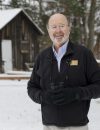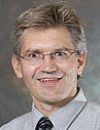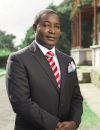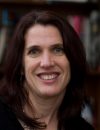UW In The News
-
Mexico’s monarch butterflies are falling victim to a real-life butterfly effect
Climate change may be one of the other threats pushing down monarch numbers. It’s messing with weather across their range, which plays a huge role in how many butterflies ultimately arrive in Mexico each year, according to Karen Oberhauser, a monarch expert and professor of entomology at the University of Wisconsin Madison. It’s getting hotter where monarchs breed, for example, and that makes it harder for them to flourish, she said.
-
China’s Quest for Space Power Starts With Moon Dust
The theory that the moon might have abundant reserves of helium-3 goes back several decades. In 1986, scientists at the University of Wisconsin estimated that lunar soil could contain a million tons of the isotope, also known as He3.
-
COVID-19 pandemic: Scientists focus on virus’ animal origins
-
The economics of concert tickets and how Adele strained the vinyl supply chain
Now, we knew Charli XCX was going to sell out within minutes of going on sale. And Alan Sorensen, an economist at University of Wisconsin-Madison, says that this suggests that the $54 that she was charging was way too low.
-
Southeast Asians are underrepresented in STEM, but still boxed out
When Kao Lee Yang received a nomination from her university for the Gilliam Fellowship by the Howard Hughes Medical Institute for underrepresented groups in science, technology, engineering and math, she was thrilled. She’s spent years working toward her doctorate in Alzheimer’s research at the University of Wisconsin-Madison.
-
As medicine aims to close diversity gaps, orthopedic surgery is an outlier
The lack of diversity is painfully obvious to patients as well. When one of her family members needed a serious operation recently, Angela Byars-Winston, a professor of medicine at the University of Wisconsin who is Black, scoured the internet looking for expert orthopedic surgeons who could provide a second opinion. She was struck that nearly all of them were white. “Really,” she told STAT, “there’s hardly anyone that looks like us? In the whole country?”
-
Hoping for a Dog Phone? You May Have a Long Wait.
Dr. McConnell, a retired professor from the University of Wisconsin-Madison, and Dr. Andrea Y. Tu, a behavior veterinarian who was also not involved with the research, said there was very little research about technology made for dogs.
-
Ariana Grande ‘Asianfishing’ Controversy Explained
Meanwhile, Leslie Bow, a professor of Asian American studies at the University of Wisconsin, described blackfishing as “a racial masquerade that operates as a form of racial fetishism” to CNN that same month
-
Why Are We Still Isolating Vaccinated People for 10 Days?
“It’s clear that vaccination will reduce infectiousness,” Ajay Sethi, an epidemiologist at the University of Wisconsin at Madison, told me. And fully vaccinated folks who repeatedly test negative “are probably not a risk to anybody anymore,” Angela Rasmussen, a virologist at the University of Saskatchewan, told me.
-
Can depression worsen Covid-19 and other infections? And can a virus make you depressed?
It appears that something in the body, something biological associated with these disorders, may be at play. “That suggests there’s a physiologic vulnerability there in these folks,” said Charles Raison, a psychiatrist and researcher at the University of Wisconsin Madison.
-
Millennials are facing high inflation for the first time
OK, this can seem a little dramatic. But millennials have met economic woes as they’ve aged into life’s milestones — like when they entered the job market around the Great Recession, said Cliff Robb, who teaches consumer science at the University of Wisconsin-Madison.
-
What a Giant Map of Fungus Tells Us About Climate Change
“When you talk about carbon cycles you really want to start thinking carefully about decomposers,” said Anne Pringle, a professor of botany and bacteriology at the University of Wisconsin-Madison. “A massive and coordinated effort to collect biodiversity data on a global scale is badly needed and will be very welcome”, she added, saying “there are good reasons to include all kinds of fungi in that effort.”
-
Loyalty to family — instead of CNN — puts Chris Cuomo at risk
While people can relate to wanting to help a family member, his primary obligation as a journalist is to CNN’s viewers, said Kathleen Culver, director of the Center for Journalism Ethics at the University of Wisconsin. These revelations can damage CNN’s reputation, and all journalists, at a time people are already suspicious of the profession, she said.
-
US tracking of virus variants has improved after slow start
University of Wisconsin AIDS researcher David O’Connor noted: “We don’t have the sorts of interstate travel restrictions that would make it possible to contain the virus in any one place.”
-
‘Sad and angry and frustrated’: Black moms on the Rittenhouse verdict
“He was 17 at the time of the offense,” said Steven Wright, a law professor at the University of Wisconsin. “Having someone who looks like a child there might make some jurors see their younger selves in him or their children in him, and they might think, ‘What would my younger self have done or my son or daughter have done in his position?’”
-
Millennial Money: It’s OK to not buy stuff on Black Friday
“This time of year, there is a lot of pressure to consume happiness — to show your love through products,” says Christine Whelan, a clinical professor in the department of consumer science at the University of Wisconsin-Madison.
-
That Product Will Work Well for You. But for Me? Not So Much.
In the end, it’s useful to remember that it’s simply not possible for everyone to be correct in believing that products work better for others, yet our studies show that people reach this conclusion. We buy books for the pleasure or knowledge we expect them to impart, creams for the lines they will hopefully erase, and cooking classes to acquire new skills. Do these products work? When we buy them for ourselves, we hope so. When we buy them on behalf of others, we know so. If this sounds discouraging, take comfort in the abiding truth that when you believe others will benefit more from these products, everyone else feels exactly as you do.
-Dr. Polman is an associate professor of marketing at the Wisconsin School of Business at the University of Wisconsin-Madison.
-
Can a Machine Learn Morality?
Joseph Austerweil, a psychologist at the University of Wisconsin-Madison, tested the technology using a few simple scenarios. When he asked if he should kill one person to save another, Delphi said he shouldn’t. When he asked if it was right to kill one person to save 100 others, it said he should. Then he asked if he should kill one person to save 101 others. This time, Delphi said he should not.
-
Darrell E. Brooks’s low bail in case before Wisconsin parade attack draws backlash
Michele LaVigne, a former director of the Public Defender Project at the University of Wisconsin at Madison, told The Post that setting Brooks’s cash bail at $1,000 is not necessarily unusual and that bail amounts can vary between jurisdictions and courtrooms. When Brooks was arrested earlier this month, she said, officials weighing what bail to request probably considered the seriousness of the charges and the fact that he was already out on bail in the earlier case and had continued showing up for court appearances.
-
One Historic Black Neighborhood’s Stake in the Infrastructure Bill
“There’s the recognition that driving these highways through the communities in the first place was wrong,” said Chris McCahill, managing director of State Smart Transportation Initiative, a transportation think tank based at the University of Wisconsin-Madison. “And so now the question becomes, what to do about it now?”
-
How Roundabouts Help Lower Carbon Emissions
Andrea Bill, associate director of the Traffic Operations and Safety Laboratory at the University of Wisconsin-Madison, said roundabouts sometimes led to more fender-benders and sideswipes, but saved people from paying a greater price.
-
Ion Meyn: Kyle Rittenhouse not guilty verdict reveals the true value of life in Wisconsin
By Ion Meyn, assistant professor of law at the University of Wisconsin
On Friday, Kyle Rittenhouse was found not guilty on all five counts, including reckless homicide, attempted intentional homicide and recklessly endangering safety.
-
Kyle Rittenhouse Acquitted in Bombshell End to Vigilante Murder Trial
“There is a significant risk that there is going to be unrest regardless of the outcome. Simply because the case is so politicized and whichever side prevails, the folks who support the other side are going to feel a grave injustice has occurred,” Keith A. Findley, a law professor at the University of Wisconsin, told The Daily Beast ahead of the verdict.
-
Fact check: Sneezing doesn’t cause temporary death
“While the heart rate may slow down, the heart continues beating and does not really stop,” Dr. Nizar Jarjour, a professor of medicine and radiology at the University of Wisconsin’s School of Medicine and Public Health, said in an email. “Right after the sneeze is over, the heart rate goes back to normal. You really do not die for a second when you sneeze!”
-
Rittenhouse acquittal and Arbery killing raise questions on ‘vigilante justice’
The flood of more gun owners could prove a dangerous mix in certain situations and furthermore, Rittenhouse’s acquittal can be taken as a win for gun owners and advocates, said Ion Meyn, an assistant law professor at the University of Wisconsin-Madiso
-
Why the Kyle Rittenhouse ‘not guilty’ verdict is not a surprise to legal experts
The defense had a “very disciplined message” throughout the trial, said Steven Wright, a law professor at the University of Wisconsin. They consistently emphasized Rittenhouse’s stated intentions that night — acting as a medic and protecting private property — and the threats to his safety, Wright said.
-
Could Kyle Rittenhouse face civil penalties despite acquittals in Kenosha deaths?
“He’s a public figure now, and money might come in,” said Ion Meyn, who teaches law at the University of Wisconsin-Madison. “I’m not convinced there’s nothing there.”
-
The Kyle Rittenhouse Verdict Exposes America’s Divide Over Who Gets to Carry a Gun
“There’s no way to get around … the intimidating factor of white men dressed in paramilitary garb with automatic weapons,” said Steven Wright, a law professor at the University of Wisconsin-Madison.
-
After Rittenhouse: Will deadly clashes multiply as the right to self-defense expands?
To win their claim of self-defense, Rittenhouse’s lawyers had to convince jurors only that the teen had a reasonable fear that he might be killed or seriously injured, said Keith Findley, a law professor at the University of Wisconsin.
-
America’s Decline Started at Home
One thing is becoming quite clear, however. The environmental destruction in our future will be so profound that anything less than the emergence of a new form of global governance—one capable of protecting the planet and the human rights of all its inhabitants—will mean that wars over water, land, and people are likely to erupt across the planet amid climate chaos. Absent some truly fundamental change in our global governance and in energy use, by mid-century humanity will begin to face disasters of an almost unimaginable kind that will make imperial orders of any sort something for the history books.
-Professor of History at the University of Wisconsin-Madison. A TomDispatch regular, he is the author of In the Shadows of the American Century: The Rise and Decline of US Global Power and Policing America’s Empire: The United States, the Philippines, and the Rise of the Surveillance State.
- Newer stories
- Page 33 of 140
- Older stories
Featured Experts
Cecelia Klingele: Body-worn cameras by police
Madison Police Chief Shon Barnes is requesting that the city fund widespread use of body cameras for officers in the… More
Stanley Temple: Fall phenology
The days have finally started getting cooler and we all know winter awaits. Stanley Temple, an expert on birds, wildlife, endangered… More
Kathleen Glass: Food safety
Food is an integral part of Thanksgiving. And who doesn't love leftovers? But after how long should you leave those… More
Jonathan Temte: The seasonal flu shot
Family medicine professor Jonathan Temte is available to discuss this year's updated seasonal flu shot and flu prevention and control. More
Noelle LoConte: Pancreatic Cancer Awareness Month
Pancreatic cancer is one of the most difficult cancers to prevent, diagnose or treat. Earlier this month, music legend Quincy… More
Alvin Thomas: Movember and Men's Health Month
You might see more facial hair this month as Movember goes into full effect, drawing awareness toward men's health. Alvin… More
Dominique Brossard: Vaccine hesitancy
With a new administration poised to take power in January, a change in policy regarding vaccines may also be on the way.… More







